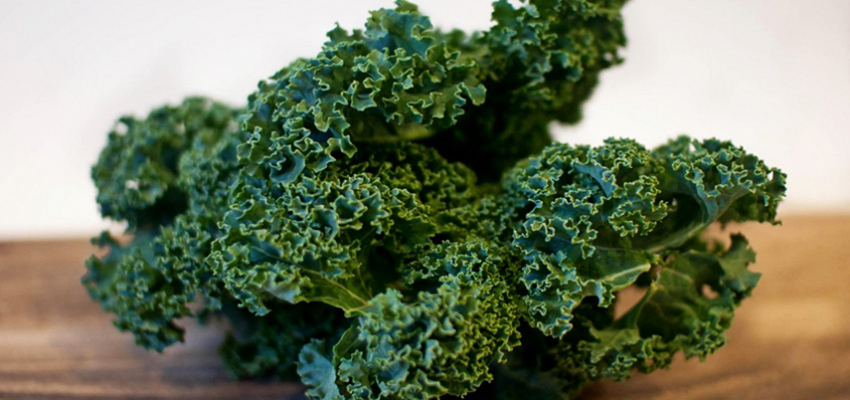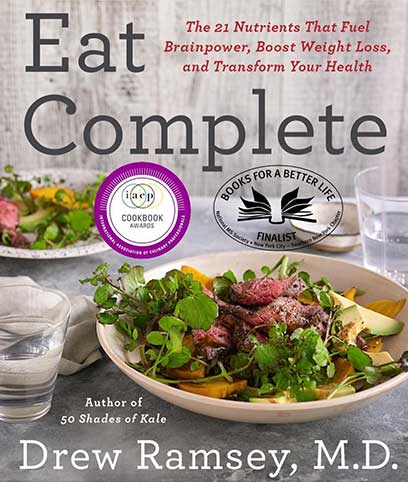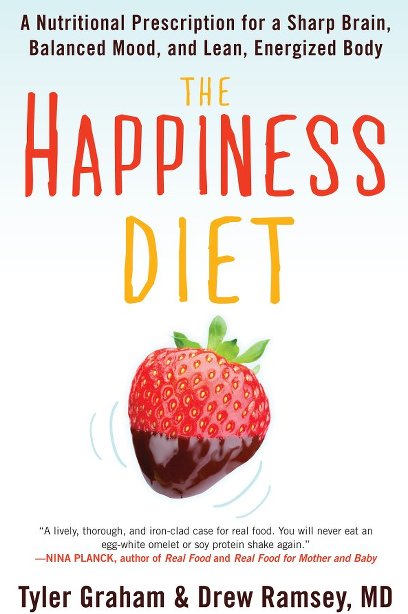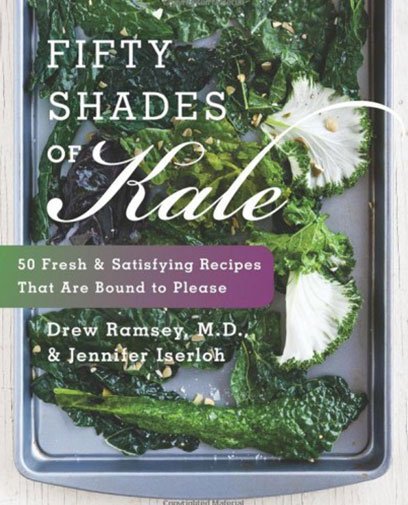Image courtesy Flickr/Bobbi Bowers
The frenzy over kale has turned from foodie buzz to eater roar. Around the country everyone is talking about kale. As a physician, nothing could please me more. Kale represents an important lesson for all us eaters about the power of food choices to transform our health. Sure, let’s disclose my bias right away. My new book 50 Shades of Kale (Harper/Wave 2013,) co-authored with Chef Jennifer Iserloh, is just out. It is a gorgeous tribute to our muse kale and at its core a food prescription aimed to improve your brain health.
So what’s all the kale hype about?
I love recommending kale for three fundamental reasons: Kale tops the charts of nutrient density, possesses incredible culinary flexibility, and is easy to grow almost anywhere. My ultimate measure of a food is its power to support brain health, and it is clear that more kale in your diet means a happier, healthier, sexier you — all the basic signs that your brain is running well.
How does kale do this? What’s the miracle in that crunch? Let’s start with the power of phytonutrients, molecules in plants that do amazing things. One called sulfurophane travels from your kale smoothie to your liver where it amps up your body’s natural detox power. Another called kaempferol is truly the fountain of youth — it turns on the genes that promote longer life. (Move over red wine resveratrol.) Add to this mix carotenoids, which Harvard University just linked to one’s overall sense of optimism, and glucosinolates, a known cancer fighter, and it is clear that kale is good medicine. Just step into the “Farmacy.”
Brain health depends on picking the right fats in your diet, as the brain is about 60 percent fat. One vital set of fats most eaters need more of is the omega-3s, which happen to be the main kind of fat in kale. The plant-based omega-3 ALA (alpha-linolenic acid) is linked to numerous health benefits like lowering the risk of depression and diabetes. Both diabetes and obesity wreak havoc on the brain and kale is a great first step to fighting both. High blood sugar ages blood vessels and brain cells more quickly and fat cells create “pro-inflammatory” signals and frankly, who wants an inflamed brain? The fiber in kale is naturally filling and also promotes better gut health. And kale is a naturally low-carb food, so there is no spike in blood sugar.
The brain depends on essential vitamins and minerals to function. By these traditional measures of nutrient density, kale is at the top of the charts. A cup of raw kale has just 33 calories, yet you get a huge dose of vitamin C (134 percent RDA), pro-vitamin A (206 percent RDA), and a vitamin K (684 percent RDA). Those are some hefty numbers, but what is with all that vitamin K?! We don’t hear much about this essential vitamin, but this is a nutrient to watch. Long associated with blood clotting, vitamin K is a powerful anti-oxidant that protects fat. It is a key co-factor need to make the specialized fats called sphingolipids that create the structure of our brain cells, and it promotes brain cells being more resilient by influencing gene expression. Vitamin K is also needed for bone health, and kale happens to be a great source of another bone-builder. Studies of calcium absorption from kale have shown its absorption to be superior to milk! That’s because unlike many other greens such as spinach, kale has almost no oxalates that impair absorption. Kale also has a lot of protein for a leafy green. Add to this iron, folate, and vitamin B6, all needed to make brain molecules like serotonin and dopamine, and it is clear that kale is brain food.
Think kale is a trendy foodie food? Kale has always been a farmer food as it is easy to grow, resistant to pests and drought, and provides food late into the winter. Once kale endures a frost, the leaves become slightly sweeter. The hardy plant yields fresh greens late into the winter. You don’t have to be a farmer to produce small kale crop for yourself, you just need a sunbeam and a window box. Kale can be used to cook everything from raw salads to soups to cocktails. With so many health benefits and so many ways to prepare it, it is no wonder kale is a staple around the world from Scotland to Kenya.
A Vermont folk artist T-shirt designer was recently sued for his hand-printed shirts that read: Eat More Kale. He is accused of infringing on the trademark of a certain fast food restaurant that promotes eating more chicken. But suggesting what people should eat for health is a really medical intervention. Plus, can anyone claim ownership of this phrase “eat more” except for perhaps Hippocrates himself. (“Let thy food be thy medicine and thy medicine be thy food.) So take this as medical advice* for your brain health: Eat More Kale America and know you are building a better brain
For unique, colorful and surprising ways to weave kale into your diet, please check out 50 Shades of Kale. If you want to help spread the health of kale in your community, school, church, or health care facility, Chef Jen and I founded National Kale Day, an initiative to get every American to eat kale on Oct. 2.
*If you take blood thinner or have an issue with blood clotting, contact your physician before increasing your kale intake, as it can interfere with anti-clotting medications like warfarin.










Dr Ramsey,
What about studies linking kale to hypothyroidism?
Hi John,
There are no actual studies I have seen on this. Just theoretical speculation concerning the intake of the phytonutrients that can compete with iodine for uptake into the thyroid called goitergens. There is no concern for moderate or even high consumption of kale as long as one eats enough iodine. It might be impossible to actually eat enough kale to even cause a problem. There is one case report of excessive Bok Choy consumption in an elderly woman who was eating almost exclusively Bok Choy and had thyroid failure. I actually wrote the author of the case report for any follow-up or other details but did not hear back. My current stance is people should keep eating kale!
Great page made lots of sense could not stop reading and recording this wonderful information in my head. will get the books to share with my children and friends. Many should switch to more home base eating. Thanks